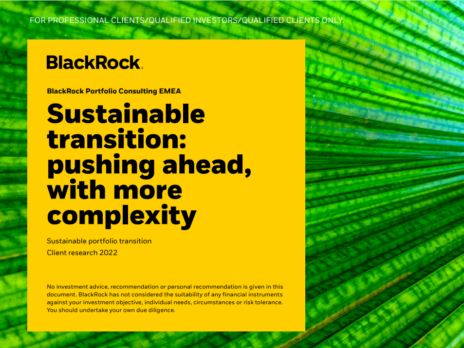

There has been a huge demand in recent years for investment options that not only generate returns for investors but also deliver better outcomes for the planet and society. Exchange-traded funds (ETFs) offer a highly cost-effective and transparent way of achieving such sustainable goals.
Many products now take into account a range of environmental, social and governance (ESG) factors alongside traditional financial metrics – be they market weighting or P/E ratios – to help savers invest more responsibly for their future.
To date, much of the focus around sustainability has been on the environment – in particular, the urgent need to limit global warming in order to tackle climate change.
But investing sustainably is about far more than simply reducing carbon emissions. While this may be the most high-profile ESG issue, other environmental and societal concerns are rising up the agenda, driven in part by the Covid-19 pandemic and wider political campaigns.
And companies are starting to realise the need to address issues of fair pay, gender equality, and diversity and inclusion – if they don’t want to face a backlash from consumers and investors.
Beyond climate: wider environmental issues
Major corporations are now required to report their carbon emissions. But this isn’t the only metric that can be used to determine how “green” a company is.
Biodiversity, in particular, is increasingly seen as a key environmental issue. The Taskforce for Nature-related Financial Disclosures (TNFD) has recently published its fourth and final beta framework, encouraging and enabling market participants to move towards integrated climate-nature disclosures. It builds on the work of the Taskforce for Climate-related Financial Disclosures (TCFD), structuring recommendations around the same four pillars of governance, strategy, risk management, and metrics and targets.
Many sustainable ETFs will look at a range of data to get a clearer picture of a company’s environmental policies, the impact its business has on the natural world and what steps it is taking to improve this over time.
These can include looking at a company’s practices in the following areas:
- Waste and recycling
- Water management
- Plastic usage – particularly in relation to single-use plastics
- Raw material sourcing
Putting the S into ESG
Alongside environmental issues, there is a renewed focus on a corporation’s social responsibilities: to its employees, its suppliers and the communities in which it operates.
Sustainable ETFs look at a broad range of these issues as part of their ESG scoring. This can include:
- Employee pay and working conditions: are employees paid a living wage, for example, or hired on short-term, insecure contracts?
- Equality, diversity and inclusion: what steps are being taken to address gender and ethnicity pay gaps, and improve representation, particularly at the boardroom level?
- Health and safety policies: does the company have robust policies in place that address both health and well-being?
- Transparent supply chains: are there modern slavery policies in place, for example, to prevent child labour or exploitation at suppliers, both in the UK and overseas?
Why are these wider ESG factors important?
There is growing recognition that focusing on these factors not only builds fairer societies but helps build better companies that will fit the regulatory and ethical challenges of the future. For investors, this can mean more sustainable long-term returns rather than chasing shorter-term gains.
There have been a number of high-profile cases in recent years in which a company’s failure to take its corporate and social responsibility seriously has had a negative impact on its share price. For example, Boohoo shares fell during the pandemic when it emerged that some textile factories that supplied the online fashion group were not abiding by Covid-19 regulations.
UK Employment Minister Guy Opperman has called for evidence of how asset managers can better assess these issues: “By considering the risks – and opportunities – relating to supply chains and communities, employees and business models, local economies and landscapes, investment strategies can better deliver long-term value.”
Investing sustainably: different ETF strategies
BlackRock, for example, offers a number of sustainable investment strategies across its iShares ETF fund range.
When constructing ETFs, managers at BlackRock will look at a range of ESG data – including information on pay and diversity and inclusion, as well as net-zero strategies and other environmental issues. This is provided by both third parties and in-house research.
For investors looking at sustainable ETFs, there are four broad strategies to choose from. Within each one there will be a multitude of individual product options to help investors build diversified portfolios that can be tailored to specific investment goals:
- Screened index options: These ETFs effectively exclude certain business activities that don’t meet wider ESG goals. These funds are designed for investors looking to screen out controversial business areas while maintaining a risk-return profile similar to traditional benchmarks as it will maintain 90% of the main index holdings. These screen funds can cover country-specific, regional or global ETFs (for example, World, Europe, Emerging Markets, Japan or the US).
- ESG broad index investing: These ETFs pursue an explicit ESG objective that may include a targeted, quantifiable ESG outcome. Some ETFs will maximise the ESG score while maintaining close proximity to the traditional benchmark. Other products seek to invest in the top ESG performers or leaders in each sector. There are also ESG products that offer multi-asset portfolios – again with weightings towards companies with better ESG scores – and ETFs that look at specific factors but add an ESG overlay.
- ESG thematic options: These ETFs do not follow traditional stock market indices but seek to build new ones that capitalise on wider societal trends. Apart from climate change and clean energy, some ETFs focus on diversity and inclusion, smart cities and development bank bonds.
- Impact ETFs: These index funds seek to generate a measurable, sustainable outcome alongside a financial return. Impact investment can look at both the environmental and societal impact of investments.
Investors now have a far broader range of sustainable ETF options, allowing them to build diversified portfolios for different risk profiles. These not only invest across different global markets and sectors but also target a range of ESG issues from plastic pollution to more equal pay policies.
Investment isn’t only about the companies delivering profits today but also those that have the potential to do so in future. By ensuring they take all possible steps to avoid harming the world we live in, companies that act according to wider environmental and societal issues may be better placed to deliver more sustainable returns for investors in the future.







